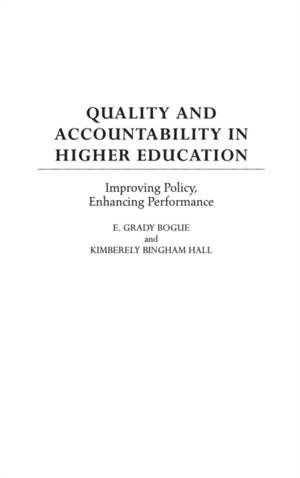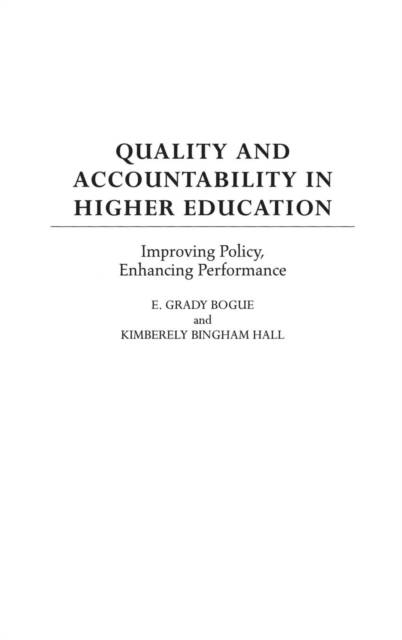
- Afhalen na 1 uur in een winkel met voorraad
- Gratis thuislevering in België vanaf € 30
- Ruim aanbod met 7 miljoen producten
- Afhalen na 1 uur in een winkel met voorraad
- Gratis thuislevering in België vanaf € 30
- Ruim aanbod met 7 miljoen producten
Quality and Accountability in Higher Education
Improving Policy, Enhancing Performance
E Grady Bogue, Kimberely HallOmschrijving
This comprehensive volume clarifies the historical, technical, and philosophical details present in the various quality assurance theories and policy systems of the American higher education system. The authors, E. Grady Bogue and Kimberely Bingham Hall, examine the theories of quality, including goal achievement, outcomes, value-added impacts, and reputation. They trace the philosophical heritage and analyze the strengths and weaknesses of quality assurance policy systems such as accreditation, rankings and ratings, outcomes, licensure, program reviews, follow-up studies, and total quality management. They also recommend a set of policy principles for improving their integration and effectiveness.
Besides offering the details of policy systems for defining, developing, and demonstrating quality, this work also delves into the moral and ethical issues inherent in quality measures of higher education institutions. Bogue and Hall assert that quality cannot exist without integrity in personnel, policies, and programs. Political and academic officers must work together more closely in order to design appropriate collegiate accountability systems. Administrators, professors, and government leaders would all benefit from this thorough analysis of past and present quality assurance programs and the subsequent recommendations for future policies.Specificaties
Betrokkenen
- Auteur(s):
- Uitgeverij:
Inhoud
- Aantal bladzijden:
- 288
- Taal:
- Engels
Eigenschappen
- Productcode (EAN):
- 9780897898836
- Verschijningsdatum:
- 28/02/2003
- Uitvoering:
- Hardcover
- Formaat:
- Genaaid
- Afmetingen:
- 154 mm x 241 mm
- Gewicht:
- 612 g

Alleen bij Standaard Boekhandel
Beoordelingen
We publiceren alleen reviews die voldoen aan de voorwaarden voor reviews. Bekijk onze voorwaarden voor reviews.











